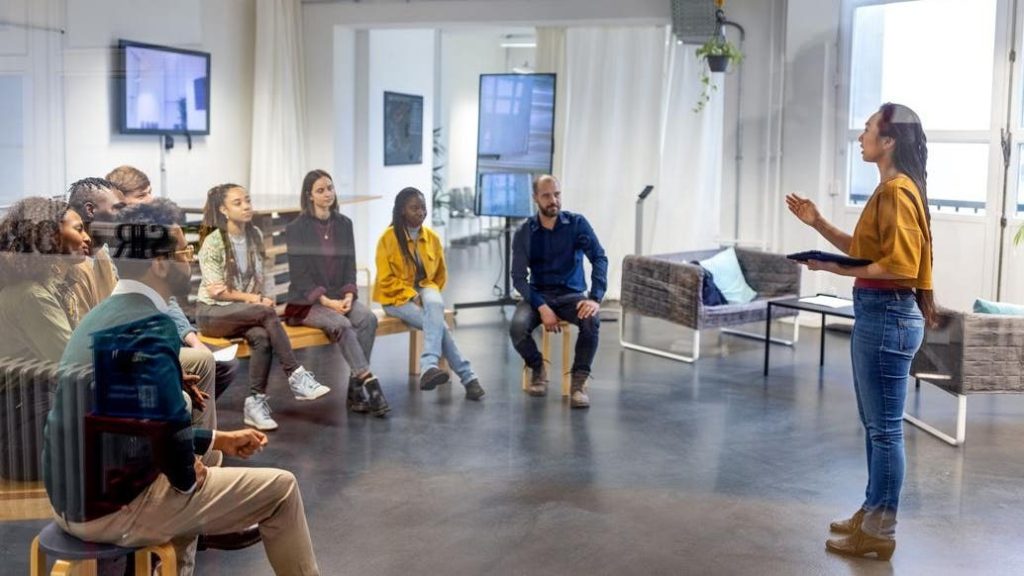Dan Fisher is the president and CEO of ECMC Group, a nonprofit focused on helping students succeed in postsecondary education.
While the federal Covid-19 national emergency has officially ended, the pandemic’s impact on high school students continues to be evident, particularly as they chart their course for the future. A majority of these students understand the benefits of education after high school—a statistic that has rebounded to pre-pandemic levels—but only 13% feel prepared to make a decision about their education and career path after graduation. That statistic drops to 8% for those who are from low-income households, BIPOC or the first in their family to attend college.
These are just a few of the statistics that we uncovered recently in a national survey of more than 1,000 high schoolers from around the country. Our findings illustrate that we have an opportunity to hear these young voices and advance our efforts to ensure they can meet their education and career goals. Actively listening to students helps everyone. Nonprofits and for-profit businesses alike have an obligation to listen to what this generation has to say. Doing so can impact the future workforce and our overall economy.
While students understand that education and training beyond high school will give them a lifelong advantage, the type of education they are seeking has shifted. Students considering a four-year college degree have dipped 10 percentage points since before the beginning of the pandemic. In addition, more than a third say that because of the pandemic, they feel more comfortable following a path other than a four-year degree. Data also shows that students have an increased interest in career and technical education (CTE) or on-the-job training.
Cultivating the next generation of learners and workers will involve action on the part of educators, policymakers, business leaders and philanthropy. Keeping the data in mind, the following are some key takeaways to consider.
While many of today’s high schoolers are interested in pathways that take less time to complete than a four-year degree, they also fully expect to be lifelong learners and continue to grow their skill sets throughout their lives. To address these expectations, education institutions may consider bachelor’s degree programs that take less time to complete or integrate credentials, such as associate degrees and certificates, into four-year programs. Institutions also should consider how to support students’ desire for ongoing learning through stackable credentials or other continuing education opportunities. Organizations that wish to recruit and retain tomorrow’s workers should consider offering additional opportunities for experiences such as internships, externships, apprenticeships and lab-based learning, or offering credit for learning gained while on the job.
To address the lack of student preparedness, high schools must create an ecosystem of support including comprehensive information about education pathways and career exploration opportunities for students. It is essential that we provide them with information that allows them to make informed decisions about their future.
Policymakers must support education pathways that are affordable and meet students’ basic needs. Over a third of students cite making sure they can “feed themselves” as one of the top three decision-making factors in their postsecondary decision. In addition, concerns about transportation and access to mental health services remain top of mind. Nonprofits also can play a role in supporting basic needs. Grants and other means of financial support can provide students with essentials like housing, food stipends and emergency money directly as they work to pursue their education.
To remain competitive, employers must invest in their workforce. Eighty-two percent of high schoolers say they want an educational path that leads directly to a career. Our data also shows that participants expect future employers to play a role in their ongoing development. To attract Gen-Z workers, employers must consider offering additional support like structured training programs, tuition reimbursement for a variety of different education pathways or helping fund educational goals for their team members.
As we look to a post-pandemic future, we must take a proactive role to support the whole learner as they seek education and fulfilling careers. Businesses and nonprofits have an opportunity to take these learnings and apply them to their operations, the work in their communities and their hiring practices.
Students have spoken. How will we answer?
Forbes Nonprofit Council is an invitation-only organization for chief executives in successful nonprofit organizations. Do I qualify?
Read the full article here









